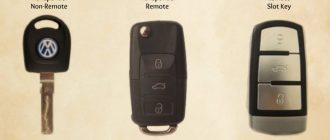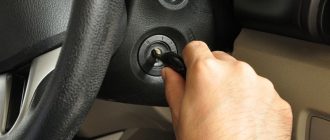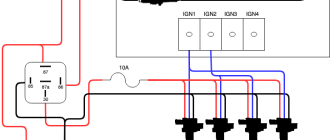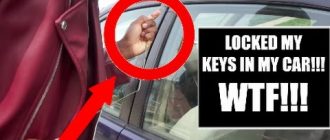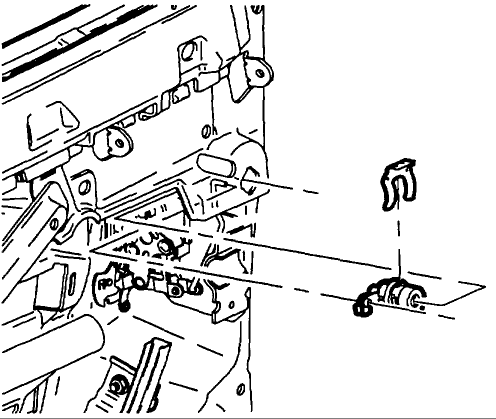
What Causes a Car Door Lock to Malfunction
Car door lock malfunctions can be frustrating and inconvenient. When a door lock fails to function properly, it can prevent you from accessing your vehicle or provide a false sense of security. Understanding what causes these malfunctions can help you troubleshoot the issue and prevent future problems.
One common cause of car door lock malfunctions is a faulty lock mechanism. Over time, the lock mechanism can wear out or become damaged, resulting in difficulty in opening or closing the door. This can be caused by regular wear and tear, as well as exposure to extreme temperatures or moisture.
Another possible cause of car door lock malfunctions is an issue with the key or remote. If the key or remote is damaged or worn, it may not fit properly in the lock or fail to send the correct signal to unlock the door. In some cases, the programming of the key or remote may need to be reprogrammed to restore proper functionality.
Electrical issues can also be a culprit behind car door lock malfunctions. Faulty wiring or a blown fuse can disrupt the electrical system that controls the door locks, preventing them from operating correctly. These issues can be more challenging to diagnose and require the expertise of a professional mechanic.
In conclusion, there are several common causes of car door lock malfunctions, including a faulty lock mechanism, issues with the key or remote, and electrical problems. By understanding these causes, you can better troubleshoot and address any issues that arise, ensuring the proper functioning of your car door locks.
Key Fob Battery is Dead
One of the common causes for a car door lock malfunction is when the key fob battery is dead.
The key fob is a wireless remote control that allows you to lock and unlock your car without using the physical key. It sends a signal to the car’s central locking system, instructing it to either lock or unlock the doors. However, if the battery in the key fob is dead, the signal will not be transmitted, and the door lock will not function properly.
To determine if the key fob battery is dead, you can try using the spare key fob. If the spare key fob works, then it is likely that the battery in the original key fob needs to be replaced.
Replacing the key fob battery is a simple process. You will need to locate the battery compartment on the key fob, open it, and remove the old battery. Then, insert a new battery of the same type and close the battery compartment. Once the new battery is in place, the key fob should work properly and the car door lock should function as expected.
If replacing the key fob battery does not resolve the issue, there may be another underlying problem with the car door lock system that requires further inspection and repair by a professional. It is recommended to consult a mechanic or locksmith for assistance in diagnosing and fixing the problem.
Key Fob Needs to be Reprogrammed
One of the common causes of a car door lock malfunction is when the key fob needs to be reprogrammed. The key fob is a small device that allows you to lock and unlock your car doors without using a physical key. It uses radio frequency technology to communicate with your car’s central locking system.
Over time, the key fob may lose its programming or become out of sync with the car’s locking system. This can occur due to various reasons, such as a dead battery in the key fob, electromagnetic interference, or a software glitch.
When the key fob needs to be reprogrammed, it can result in the car door lock malfunctioning. In this case, the key fob may no longer work to lock or unlock the car doors, or it may work intermittently.
To resolve this issue, reprogramming the key fob is necessary. This process involves resetting the key fob’s programming so it can communicate effectively with the car’s locking system. This can usually be done at a car dealership or by a professional locksmith who has the necessary equipment and knowledge.
It’s important to note that trying to reprogram the key fob yourself without proper knowledge and equipment can lead to further issues or even permanent damage to the key fob or the car’s locking system. Therefore, it’s advisable to seek professional assistance when dealing with key fob reprogramming.
If you suspect that the key fob is causing the car door lock malfunction, it’s recommended to have it checked and reprogrammed as soon as possible to avoid any inconvenience or potential security risks.
| Dead battery in the key fob |
| Electromagnetic interference |
| Software glitch |
Mechanical Failure of the Locking Mechanism
One of the common reasons for a car door lock malfunction is a mechanical failure of the locking mechanism. This can happen due to various causes, such as:
Wear and Tear: Over time, the components of the locking mechanism can wear down, resulting in a loss of functionality. This can occur due to frequent use, exposure to harsh weather conditions, or poor maintenance.
Broken Parts: If any part of the locking mechanism, such as the latch or linkage, breaks or becomes damaged, it can prevent the door from locking properly. This can happen due to forceful impacts, attempted break-ins, or accidents.
Rust and Corrosion: Rust and corrosion can form on the locking mechanism, especially in regions with high humidity or where the car is exposed to saltwater or road salts. This can cause the components to stick or seize, making it difficult to lock or unlock the door.
Misaligned Components: If the door or the locking mechanism becomes misaligned, it can prevent the lock from engaging or disengaging properly. This misalignment can occur due to excessive force applied to the door, improper installation, or wear and tear.
Faulty Lock Cylinder: The lock cylinder is the part of the locking mechanism where the key is inserted. If the lock cylinder becomes damaged or worn out, it can result in difficulty turning the key or cause the lock to jam.
Faulty Actuator: The actuator is the electronic component that controls the locking and unlocking of the door. If the actuator malfunctions, it can prevent the door from locking or unlocking when commanded.
In conclusion, various mechanical failures of the locking mechanism can lead to a car door lock malfunction. It is essential to regularly inspect and maintain the locking components to prevent these issues and ensure the security of your vehicle.
Broken or Damaged Key
One of the common causes of car door lock malfunction is a broken or damaged key. If your car key is cracked, bent, or has a chip missing, it may not properly engage with the lock mechanism, resulting in difficulty turning the key or opening the lock.
Keys can become damaged due to normal wear and tear over time, especially if they are frequently used or mishandled. Additionally, keys can break if excessive force is applied when turning the key or if it is inserted or removed from the lock at an angle.
To prevent key damage and subsequent lock malfunctions, it is important to handle your car keys with care. Avoid using excessive force when operating the lock and make sure to insert and remove the key in a straight and aligned manner.
Wiring Issue in the Door Lock System
In a car, the door lock system plays a crucial role in ensuring the safety and security of the vehicle. However, malfunctions can occur in this system, leading to various issues with the car’s doors. One common cause of door lock malfunctions is a wiring issue in the door lock system.
The door lock system consists of complex wiring that connects the various components of the system. This wiring allows for the communication and control between the door lock mechanism and the central locking system of the car.
However, over time, the wiring in the door lock system can become damaged or frayed. This can happen due to various reasons, such as wear and tear, accidents, or exposure to harsh weather conditions. When the wiring becomes faulty, it can disrupt the flow of electrical signals, causing malfunctions in the door lock system.
Some of the common symptoms of a wiring issue in the door lock system include doors that do not lock or unlock properly, doors that lock by themselves, or doors that do not respond to the central locking system. In some cases, the issue may be intermittent, with the doors working fine one moment and malfunctioning the next.
To resolve a wiring issue in the door lock system, it is necessary to locate the damaged wiring and repair or replace it. This may require dismantling the door panel and tracing the wiring to identify the faulty section. Once the faulty wiring is identified, it can be repaired by reconnecting or replacing the damaged part.
In conclusion, a wiring issue in the door lock system can be a common cause of door lock malfunctions in a car. This issue can disrupt the flow of electrical signals, leading to doors that do not lock or unlock properly. To resolve this issue, it is necessary to locate and repair the damaged wiring.
Central Locking System Malfunction
One of the common reasons for car door lock malfunctions is a problem with the central locking system. The central locking system is responsible for locking and unlocking all the doors of a car simultaneously. When this system malfunctions, it can cause issues with the lock mechanism in the doors.
There can be several reasons for central locking system malfunctions. One of the most common reasons is a faulty or worn-out actuator. The actuator is the component of the central locking system that physically locks and unlocks the doors. If the actuator is damaged or worn out, it can result in the doors not locking or unlocking properly.
Another common cause of central locking system malfunctions is a problem with the wiring. The central locking system relies on electrical connections to send signals to the lock mechanism in each door. If there is a loose or damaged wire, it can disrupt the signal and prevent the doors from locking or unlocking.
In some cases, the issue may be with the central locking system control module. The control module is responsible for controlling the operation of the central locking system. If the module fails or malfunctions, it can cause the doors to not respond to the lock or unlock commands.
When experiencing a central locking system malfunction, it is important to consult a professional mechanic to diagnose and repair the issue. They will be able to identify the specific cause of the malfunction and provide the necessary repairs or replacements to ensure the proper functioning of the lock system.
Faulty Door Lock Switch
A faulty door lock switch can also cause a malfunction in a car’s door locking system. The door lock switch is usually located on the driver’s side door panel, and it is used to manually activate or deactivate the door locks. When the switch is damaged or worn out, it may not make proper contact when pressed, leading to issues with locking or unlocking the doors.
There are several potential causes for a faulty door lock switch. One common cause is wear and tear over time. Continuous use of the switch can lead to the internal components becoming worn or damaged. Additionally, exposure to moisture or dirt can cause corrosion on the switch, leading to malfunction.
If the door lock switch is faulty, it can be inconvenient and potentially leave the car vulnerable to theft. It is important to have a faulty switch repaired or replaced as soon as possible to ensure the proper functioning of the car’s locking system. A professional automotive locksmith or mechanic can diagnose the issue and provide the necessary repairs or replacements to fix the faulty door lock switch.
Rust or Dirt in the Door Lock Cylinder
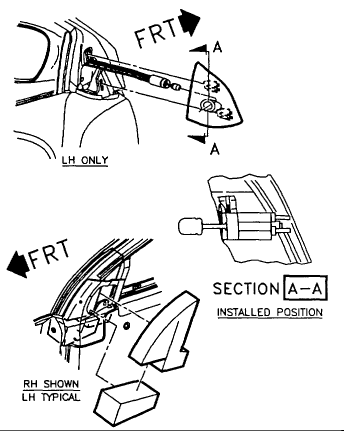
One common cause of car door lock malfunctions is the presence of rust or dirt in the door lock cylinder. Over time, moisture can accumulate in the lock cylinder and cause rust to form. Additionally, dirt and debris can get trapped in the lock cylinder, which can interfere with the proper functioning of the lock mechanism.
When rust or dirt build up in the door lock cylinder, it can prevent the key from turning smoothly or even completely block the key from entering the lock. This can result in difficulty in locking or unlocking the car doors.
To prevent rust or dirt from causing lock malfunctions, it is important to keep the lock cylinder clean and well-maintained. Regularly lubricating the lock cylinder with a silicone-based lubricant can help prevent rust and dirt from sticking to the mechanism. Additionally, keeping the surrounding area of the lock clean can minimize the chances of debris entering the lock cylinder.
In case there is already rust or dirt in the door lock cylinder, it is recommended to have a professional locksmith clean and lubricate the cylinder. They have the proper tools and expertise to safely remove rust and dirt without causing further damage to the lock.
By addressing the issue of rust or dirt in the door lock cylinder, car owners can ensure smooth and reliable operation of their car locks, minimizing the risk of lock malfunctions and inconvenience in accessing their vehicles.
Door Lock Actuator Failure
A malfunctioning car door lock can be caused by a variety of reasons, one of which is a door lock actuator failure. The door lock actuator is an integral part of the car’s locking mechanism and is responsible for physically locking and unlocking the doors.
There are several causes for door lock actuator failure. One common cause is wear and tear over time. The constant use of the door locks can lead to the actuator wearing out and eventually failing. Another cause can be electrical issues. If there is a problem with the wiring or electrical components of the door lock actuator, it can cause it to malfunction.
When the door lock actuator fails, it can result in the door lock not responding to the key fob or the door lock button inside the car. The door may also lock or unlock intermittently or make unusual sounds when trying to lock or unlock.
It is important to address a door lock actuator failure as soon as possible, as a malfunctioning door lock can compromise the security of the car. Repairing or replacing the door lock actuator may be necessary to ensure the doors lock and unlock properly.
Incorrect Key Turning or Insertion
An incorrect key turning or insertion is one of the common causes of door lock malfunctions. When a key is inserted into the lock in an incorrect manner or turned too forcefully, it can damage the lock mechanism and lead to issues.
Using the wrong key can also cause problems. Each key is designed to fit a specific lock, so using a different key can cause the lock to jam or become stuck.
Additionally, worn or damaged keys can contribute to lock malfunctions. Over time, keys can become worn down or bent, making it difficult for them to properly engage with the lock mechanism.
To prevent these issues, it’s important to use the correct key for your car door lock and insert it correctly. Avoid using excessive force when turning the key, as this can damage the lock. It’s also a good idea to regularly inspect and replace worn or damaged keys to ensure smooth operation of your car door lock.
Frozen Door Locks
One common cause of car door lock malfunctions is frozen locks. In colder climates or during winter months, moisture can accumulate inside the lock mechanism. When the temperature drops, this moisture can freeze, causing the lock to become stuck or difficult to turn.
What can you do if your car door locks are frozen? One solution is to use de-icing sprays, which are designed to melt ice and reduce the build-up of frost. Apply the de-icing spray directly into the lock mechanism and wait a few minutes for it to take effect. You can also try heating your car key with a lighter or blow dryer, and then insert it into the lock to help melt the ice.
To prevent frozen door locks, you can try using a lock de-icer or silicone spray lubricant before the winter season begins. These products can help to prevent moisture from accumulating and freezing inside the lock. Additionally, parking your car in a garage or using a car cover can provide some protection against freezing temperatures and reduce the likelihood of frozen locks.
In summary, frozen door locks are a common cause of car lock malfunctions, especially in colder climates. Using de-icing sprays or heating your car key can help to thaw the frozen lock. To prevent frozen locks, use lock de-icers or silicone spray lubricants and consider parking your car in a protected area during winter months.
Damaged Door Latch
A damaged door latch is one of the common causes of car door lock malfunctions. The door latch is responsible for securely closing and locking the car door. When the latch becomes damaged, it can prevent the door from properly closing or locking, resulting in a malfunction of the car door lock.
There are several factors that can cause a door latch to become damaged. One possible cause is wear and tear over time. Constant use of the car door can cause the latch mechanism to become worn down or misaligned, making it difficult for the door to fully latch or lock.
Another potential cause of a damaged door latch is physical damage. Accidents or impacts to the car door can cause the latch to become bent or broken, compromising its ability to function properly. Additionally, extreme weather conditions, such as freezing temperatures, can cause the latch to become frozen or jammed, leading to malfunctioning door locks.
If the door latch is damaged, it is important to have it repaired or replaced as soon as possible. A malfunctioning car door lock can pose a security risk, as it may not properly secure the door. It can also be a safety hazard, as the door may unexpectedly open while driving.
In conclusion, a damaged door latch is a common cause of car door lock malfunctions. Wear and tear, physical damage, and extreme weather conditions can all contribute to the deterioration of the door latch. It is important to address any issues with the door latch to ensure the proper functioning of the car door lock.
Debris in the Door Lock Mechanism
One of the common causes of car door lock malfunctions is debris in the door lock mechanism. Over time, dirt, dust, and other particles can accumulate in the lock mechanism, causing it to become clogged or jammed. When this happens, the door lock may not function properly, making it difficult or impossible to lock or unlock the car door.
Debris can enter the door lock mechanism through various means. For example, if you frequently park your car in dusty or dirty environments, particles may accumulate on the surface of the door lock. Additionally, if you accidentally spill liquids such as soda or coffee near the door lock, the liquid may seep into the mechanism and cause it to malfunction.
When debris builds up in the door lock mechanism, it can prevent the pins and tumblers from moving freely. These pins and tumblers are essential for the lock mechanism to work properly, as they align in specific ways to allow the key to turn and unlock the door. If debris obstructs this alignment, the key may not be able to turn, and the door may remain locked or unlocked.
To prevent debris from causing door lock malfunctions, it is important to keep the door locks clean and free of dirt and dust. Regularly cleaning the exterior of the door lock with a soft brush or cloth can help remove any built-up debris. Additionally, avoiding spills near the door lock can help prevent liquid damage to the mechanism.
In case debris has already caused a malfunction in the door lock, it may be necessary to disassemble the lock mechanism for cleaning. It is recommended to consult a professional locksmith or car mechanic for assistance in cleaning or repairing the lock.
In conclusion, debris in the car door lock mechanism can lead to malfunctions and difficulties in locking or unlocking the door. By keeping the door locks clean and taking preventive measures to avoid debris accumulation, you can maintain the proper functioning of the car door lock mechanism.
Broken or Loose Connection in the Wiring
A common cause of car door lock malfunctions is a broken or loose connection in the wiring. The wiring system in a car is responsible for transmitting electrical signals to various components, including the door lock mechanism. If there is a break or loose connection in the wiring, it can prevent the lock from functioning properly.
There are several reasons why the wiring may become broken or have loose connections. One possibility is physical damage caused by accidents or collisions. The impact from a collision can cause the wiring to become dislodged or severed, resulting in a malfunctioning door lock. Another possibility is wear and tear over time. The constant opening and closing of the car doors can put strain on the wiring, causing it to become frayed or disconnected.
Additionally, exposure to moisture and corrosion can also lead to broken or loose connections in the wiring. If the car door is not properly sealed or water enters the door panel, it can cause the wires to rust or corrode, leading to malfunctions in the lock mechanism. Similarly, exposure to extreme temperatures can also impact the integrity of the wiring, causing it to degrade and become ineffective.
If there is a broken or loose connection in the wiring, it is important to have it repaired or replaced as soon as possible. Continuing to use the door lock in this state can exacerbate the issue and potentially cause further damage to other parts of the car’s electrical system.
Damaged Door Lock Motor
A damaged door lock motor is one of the main causes of car door lock malfunctions. The lock motor is responsible for the mechanical movement of the locking mechanism in the door. It receives signals from the car’s central locking system to lock or unlock the door.
There are several reasons why the door lock motor may become damaged:
- Wear and tear over time can cause the motor to malfunction.
- Water damage from rain or car washes can short-circuit the motor.
- Electrical issues, such as a blown fuse or a faulty wiring connection, can prevent the motor from operating correctly.
If the door lock motor is damaged, it may lead to various malfunctions in the car’s locking system. For example, the door may fail to lock or unlock when using the key fob or door switch. The lock may get stuck in one position or make unusual noises while attempting to operate.
To fix a damaged door lock motor, it is necessary to replace the motor with a new one. This typically requires removing the door panel to access the motor and disconnecting any electrical connections. It is recommended to have a professional locksmith or mechanic perform this repair to ensure proper installation and functionality.
Locking System Sensor Failure
A common cause of door lock malfunctions in cars is the failure of the locking system sensor. The locking system sensor is responsible for detecting the position of the door, whether it is open or closed, and sending signals to the central locking system to lock or unlock the door.
When the locking system sensor fails, it can cause various malfunctions in the car’s door locking system. One common malfunction is the inability to lock or unlock the door using the key fob or the interior lock/unlock buttons. This can be frustrating and inconvenient for car owners, especially if they are in a hurry or have their hands full.
Another symptom of a locking system sensor failure is the door not locking automatically when the car is in motion. Normally, the central locking system automatically locks all the doors once the car reaches a certain speed. However, if the locking system sensor is faulty, it may not detect the car’s motion and fail to lock the doors, compromising the safety and security of the vehicle and its occupants.
What causes the locking system sensor to fail? There could be several reasons, including wear and tear, electrical issues, or physical damage to the sensor. Over time, the sensor may become less accurate or completely stop working, leading to door lock malfunctions.
If you are experiencing door lock malfunctions in your car, it is recommended to have the locking system sensor checked and replaced if necessary by a professional automotive technician. They can diagnose the exact cause of the malfunction and take the appropriate steps to fix it, ensuring the proper functioning of your car’s door locking system.
Q&A:
Why is my car door lock not working?
If your car door lock is not working, it could be due to a number of reasons. Some common reasons include a faulty lock actuator, a worn-out key, a damaged lock cylinder, or a problem with the power lock system.
How can I fix a car door lock that won’t unlock?
If your car door lock won’t unlock, you can try a few troubleshooting steps. Start by checking if the key is turning smoothly in the lock cylinder. If not, the key may be worn out and needs to be replaced. You can also try lubricating the lock mechanism with graphite powder or a silicone-based lubricant. If these steps don’t work, it may be a sign of a more serious problem, and you should get it checked by a professional.
Can a dead car battery affect the door lock?
Yes, a dead car battery can affect the door lock. The power lock system in modern cars relies on electrical power, and if the battery is dead, it won’t have enough power to operate the door lock. In some cases, a dead battery can also cause the power locks to behave erratically.
Why is my car door lock making a clicking noise?
If your car door lock is making a clicking noise, it could be a sign of a worn-out lock actuator. The lock actuator is responsible for moving the lock mechanism, and when it wears out, it may produce a clicking sound. Another possible cause could be a loose or misaligned lock rod, which can cause the lock mechanism to make noise when it operates.
How much does it cost to repair a car door lock?
The cost of repairing a car door lock can vary depending on the cause of the malfunction and the make and model of your car. On average, you can expect to pay anywhere from $100 to $300 for a door lock repair. This cost includes the parts and labor. If the lock actuator needs to be replaced, it may be a bit more expensive.
What could be the reason for my car door lock malfunctioning?
There could be several reasons for your car door lock malfunctioning, including a faulty actuator, a broken key fob, or a problem with the wiring.

